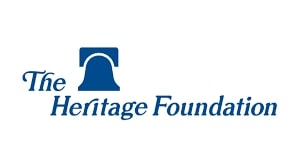 The Heritage Foundation Article Rating
The Heritage Foundation Article RatingIran's Latest Nuclear Charade | The Heritage Foundation
- Bias Rating
100% Very Conservative
- Reliability
N/AN/A
- Policy Leaning
100% Very Conservative
- Politician Portrayal
N/A
Continue For Free
Create your free account to see the in-depth bias analytics and more.
Continue
Continue
By creating an account, you agree to our Terms and Privacy Policy, and subscribe to email updates. Already a member: Log inBias Score Analysis
The A.I. bias rating includes policy and politician portrayal leanings based on the author’s tone found in the article using machine learning. Bias scores are on a scale of -100% to 100% with higher negative scores being more liberal and higher positive scores being more conservative, and 0% being neutral.
Sentiments
N/A
- Liberal
- Conservative
| Sentence | Sentiment | Bias |
|---|---|---|
Unlock this feature by upgrading to the Pro plan. | ||
Reliability Score Analysis
Policy Leaning Analysis
Politician Portrayal Analysis
Bias Meter
Extremely
Liberal
Very
Liberal
Moderately
Liberal
Somewhat Liberal
Center
Somewhat Conservative
Moderately
Conservative
Very
Conservative
Extremely
Conservative
-100%
Liberal
100%
Conservative

Contributing sentiments towards policy:
56% : To dissuade Tehran from continuing its efforts to attain nuclear weapons, Britain, France, and Germany have offered Iran substantial economic incentives, including access to imported nuclear fuel, in return for suspending production of enriched uranium, which could create fuel for nuclear reactors or the explosive material for nuclear weapons.55% : After many years of concealing and lying about its extensive nuclear programs, Iran has reached an arrangement with three European Union countries--Britain, France, and Germany--to freeze its uranium enrichment efforts while it negotiates a possible future agreement to forgo the development of nuclear weapons in return for a large package of economic carrots, including support for its nuclear program.
51% : In the meantime, Iran could exploit its position by undertaking a wide variety of dangerous nuclear development activities with foreign cooperation.
51% : The United States, like its friends and allies in the region, should not simply ignore any efforts by Iran to proceed with its nuclear programs.
45% : Although Iran pledged to suspend production of enriched uranium and to submit to more intensive inspections of its nuclear facilities, Tehran continued to take steps to obtain the fissile material necessary to build a weapon.
43% : In 2002, an Iranian opposition group exposed the existence of a secret Iranian nuclear facility at Natanz, which is part of a pattern of activities by Iran that is almost certainly inconsistent with its obligations under the 1968 Non-Proliferation Treaty (NPT).
42% : The Bush Administration, which has long pushed for sanctions against Iran's nuclear efforts, should now seek to limit severely the scope of foreign cooperation with Iran's nuclear program in the agreement that will be negotiated to guarantee that Iran does not obtain nuclear weapons.
41% : This easily reversible tactical retreat by Tehran appears to be designed to mollify the board of governors of the International Atomic Energy Agency (IAEA) before its November 25 meeting, at which the board could condemn Iran's suspicious nuclear efforts and refer the matter to the U.N. Security Council for possible sanctions.
40% : This loophole results from misinterpreting the NPT as entitling countries such as Iran to wide access to nuclear technology.
39% : Iran cannot be trusted to comply with its new nuclear commitments.
39% : Moreover, the scope of foreign cooperation is left to the judgment of the supplier states, which have a responsibility to make prudent judgments regarding the proliferation risks of any support provided to Iran.
37% : Short of military action or regime change in Tehran, the U.S. cannot immediately halt Iran's nuclear weapons program.
37% : The Bush Administration should make clear that it will work closely with the European negotiating partners to ensure that any agreement with Iran has strong verification measures and would not enhance Iran's nuclear efforts if Tehran later reneges on the agreement.
35% : This led to an IAEA investigation that subsequently forced Iran to admit that it had concealed other troubling nuclear activities, including extensive efforts to acquire the fissile material needed to build a nuclear weapon.
35% : Iran should not be allowed to use the NPT in a way that defeats the NPT's purpose.
34% : Recent revelations have bolstered long-held suspicions that Iran is using its nuclear power program to mask a clandestine nuclear weapons program.
17% : Europe's effort to bribe Iran to comply with its NPT commitments is the wrong approach because it allows Iran to use the NPT as a cover for its illegitimate nuclear weapons program.
*Our bias meter rating uses data science including sentiment analysis, machine learning and our proprietary algorithm for determining biases in news articles. Bias scores are on a scale of -100% to 100% with higher negative scores being more liberal and higher positive scores being more conservative, and 0% being neutral. The rating is an independent analysis and is not affiliated nor sponsored by the news source or any other organization.





















